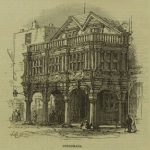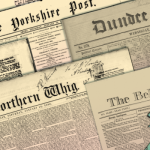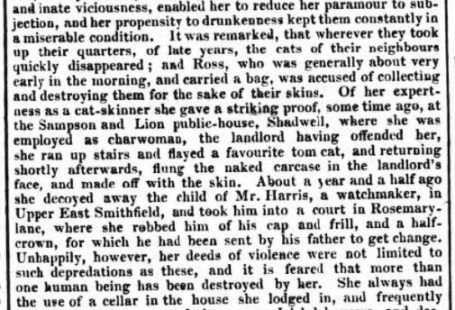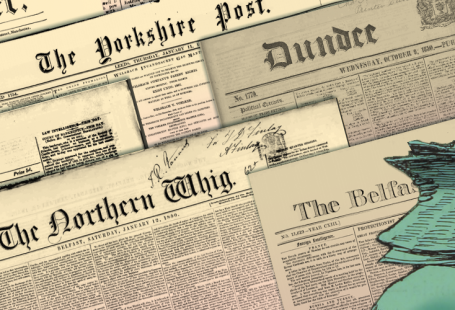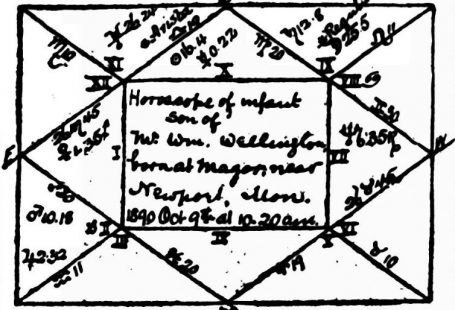This week’s episode of Who Do You Think You Are? showed how family history research can reveal previously unknown histories from both the recent and distant past. Using original documents and newspaper accounts Lisa Hammond was able to reconstruct the military service of her grandfather during World War 2, a part of his life that was unknown even to his children. At the other end of the spectrum Lisa delved deep into her family’s past and discovered that their roots extended well beyond London.
Every week we join the #WDYTYA conversation on Twitter and go in search of extracts from the newspapers to tell more of the story. This week we used newspapers to look more closely at the repatriation of prisoners of war after World War 2.
Hidden History
Lisa’s paternal grandfather had never spoken about his military service. Service records for World War 2 are not online and at the present time can only be requested by next of kin. Official documents are valuable, but as official documents they contain little contextual detail, they record the who, when and where but often not the why, and certainly not the bigger picture. Newspapers can be used to reveal the circumstances and the story.
Register now and view 3 pages for FREE

A ding-dong battle has been going on for three days for the south-eastern slopes of 3000-feet Monte Camino. The Germans are disputing every inch of the ground.
Lisa’s great grandfather Henry “Harry” Hammond was born in 1923. Just 16 at the outbreak of war he entered service at 18 and, after basic training, joined his regiment in Italy. His regiment fought at the Battle of Monte Camino. Over rough terrain and deep snow the battle was a difficult one for the Allies and Harry was captured.

Harry was first sent to Mooseburg Prisoner of War Camp in Germany. The single largest German POW camp of the second world war when liberated papers claimed that 110,000 allied troops were liberated from the camp at the end of war. Harry does not appear to have spent the duration of his captivity at Mooseburg. Cam There are many articles about the treatment of Prisoners of War to be found in the newspapers.
News of the conditions of the prison camps often referenced the poor quality of the food received by the soldiers. The Red Cross facilitated sending food parcels to the camps. Despite rationing at home the public responded eagerly. Sometimes a little too eagerly and as the article above shows the Red Cross occasionally had to reassure the public that their ‘thousands of parcels’ were being dealt with and not to involve their Majesties!
DAILY MENU In most German prison camps the rations are only sufficient to provide a daily menu something like this: Breakfast: About pint of ersatz coffee, mostly acorns. Lunch: Soup and potatoes. Tea: Soup and potatoes, or meat and potato mash, or cheese or sausage, with tea or ersatz coffee: The daily ration of bread is about 10 oz., and on Sundays there may be 2 oz. of cheese or some jam.
Repatriation & Reintegration
Men came home from the camps undernourished and, understandably, traumatised by their experience. While the concept of Shell Shock had been understood since the previous war it was not until the middle of the Second World War that there was recognition that men who had spent long periods in camps could suffer from trauma. However once recognised facilities were opened to assist with reintegration.


The handbook Settling Down in Civvy Street will occasion smiles. “There are spring beds and you sleep in sheets,” it states. Meals are served at separate tables in the dining room. There are no guards or fatigues.”
Civil resettlement units like the one attended by Harry Hammond in Ballymena in Ireland served as a ‘half-way hall guiding for repatriated men guiding them back to civilian life’. The overall approach appears to have been to keep a light touch with dances and discussion groups.
Articles about the repatriation of prisoners of war in the newspapers also include those of commonwealth and other allied troops who spent time in Britain before being sent home. We found one image of men enjoying a tour of a farm while they waited to be returned to their home countries. 
The Second World War was a defining moment in World history. Newspapers are an invaluable source of rediscovering the history of the war, and how communities dealt with six long years of uncertainty. This is certainly a topic we will be returning to time and time again.
Search Tip
Many of the places mentioned in relation to World War 2 have a long history either side of the years of the war, to ensure we were seeing results that related to just the war we used advanced search to focus our searches to just the war years.
Register now and view 3 pages for FREE





